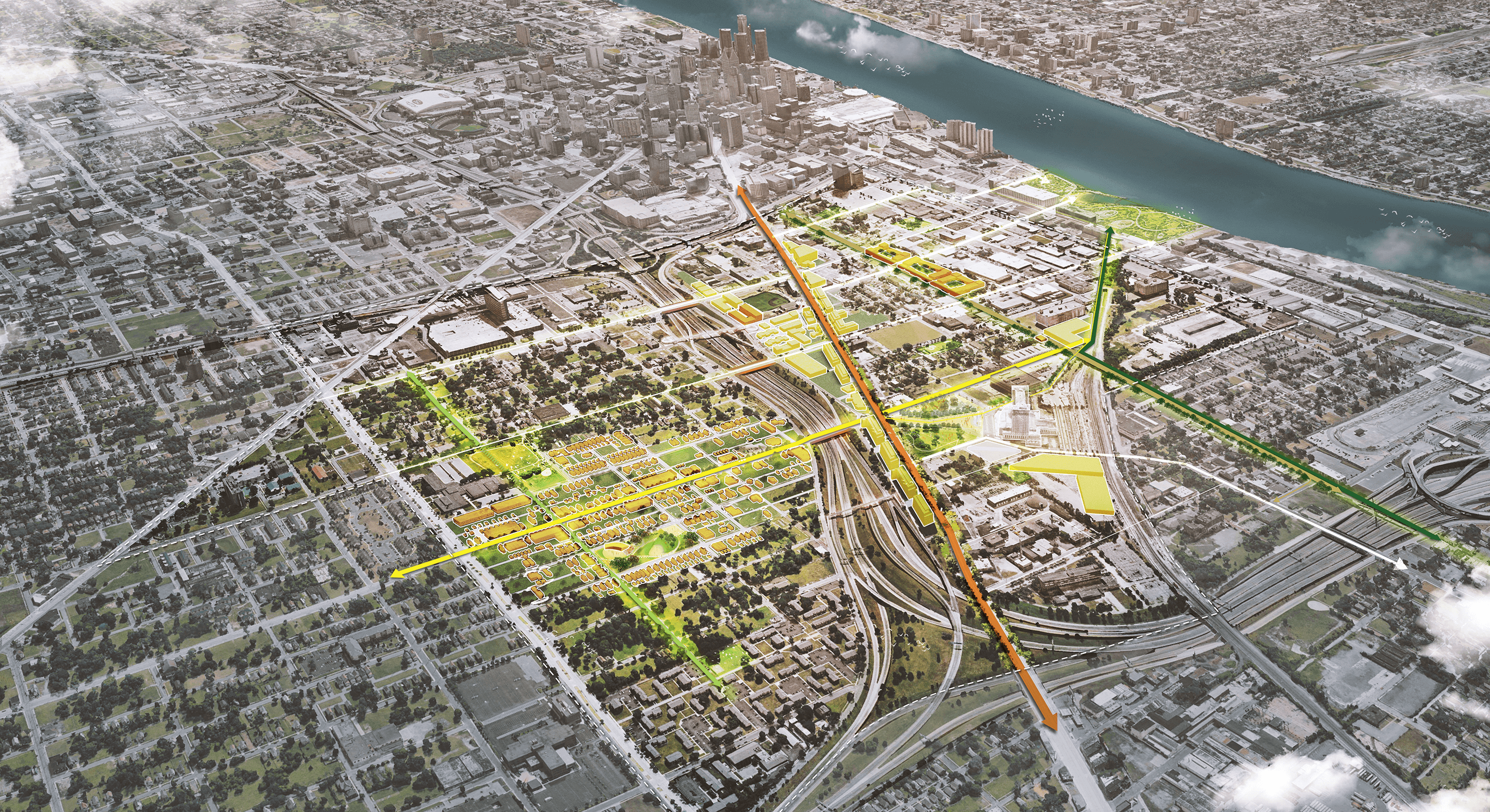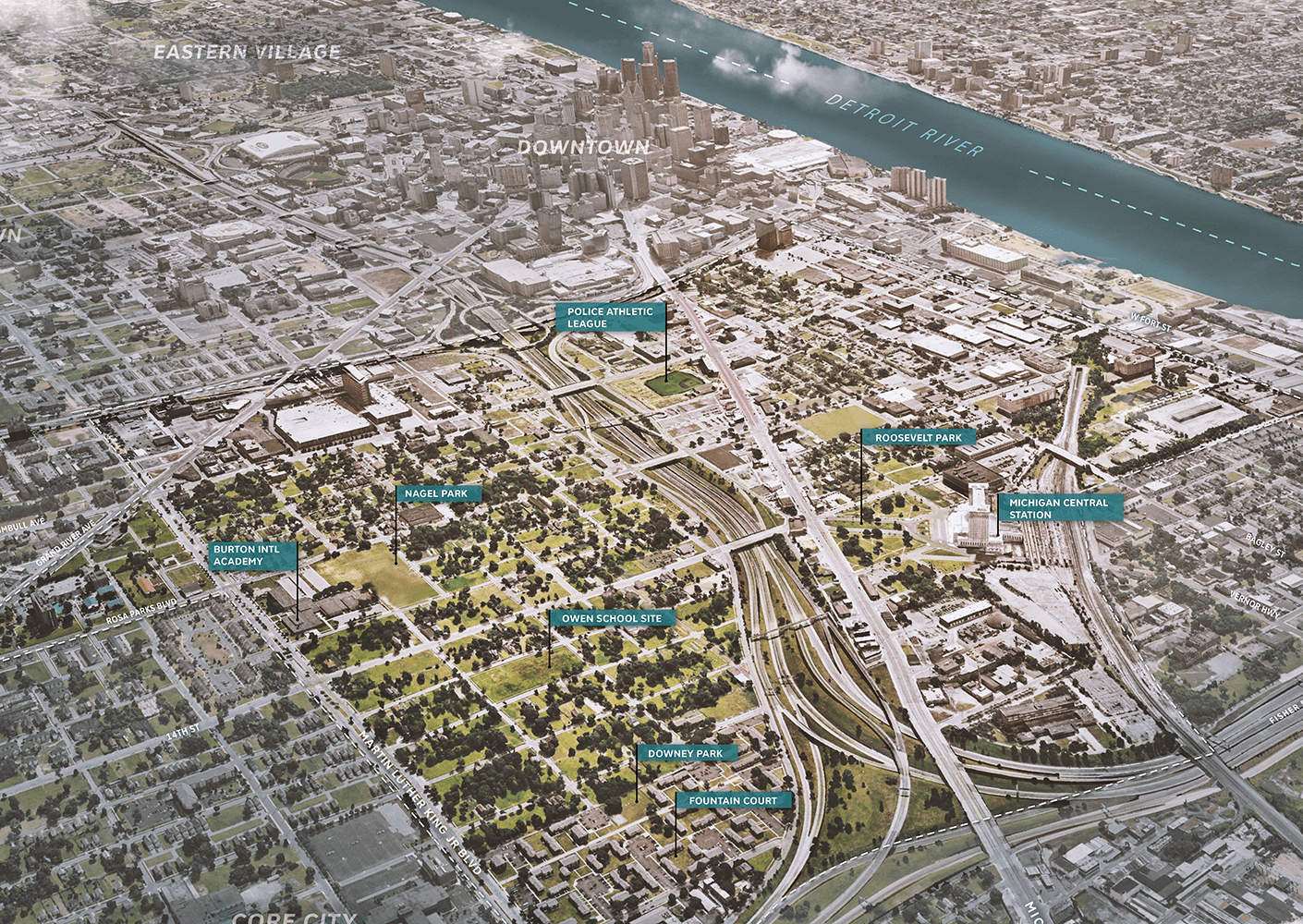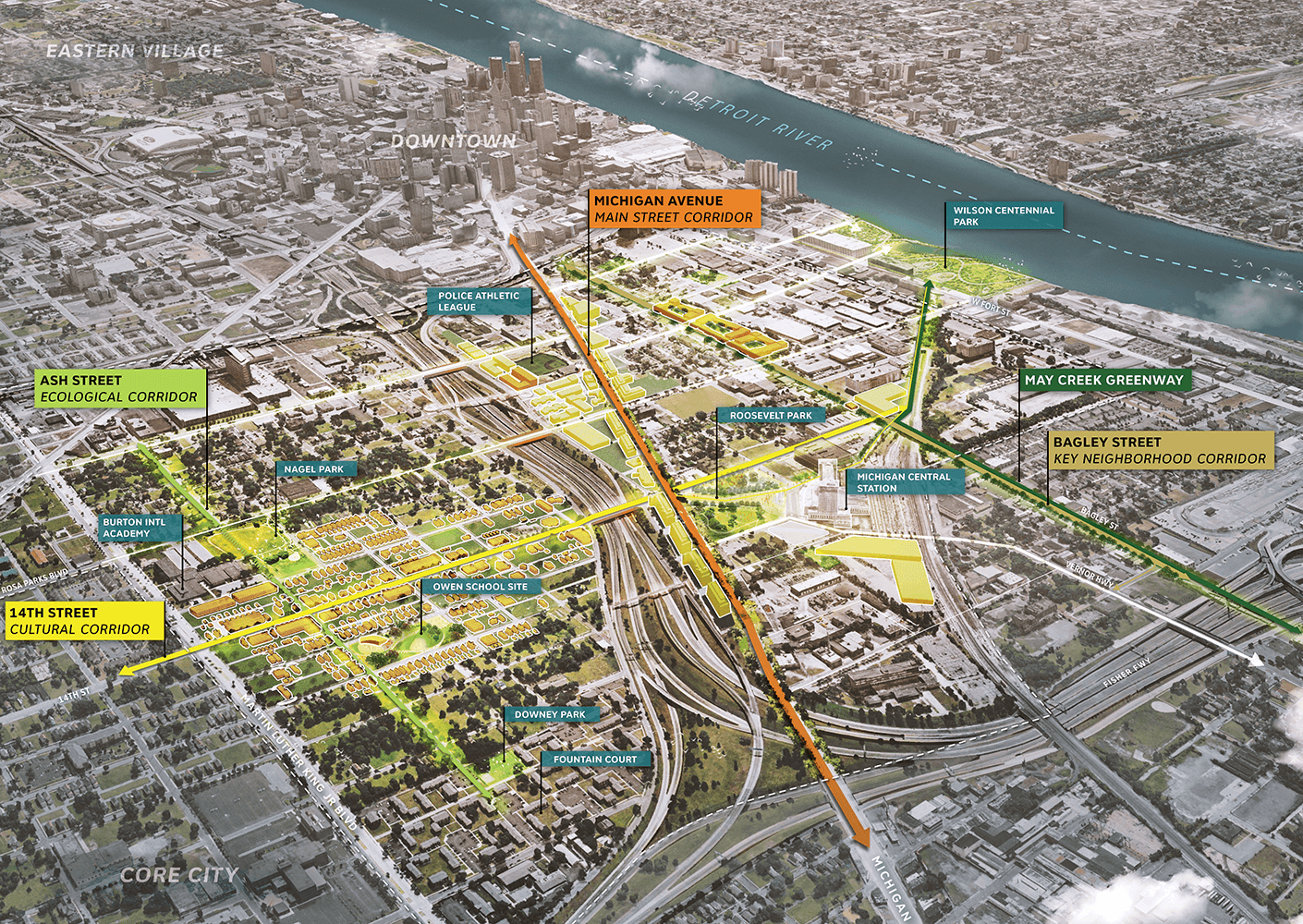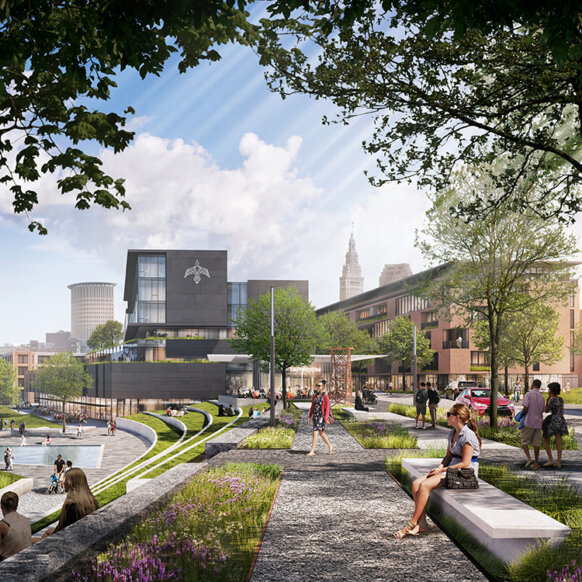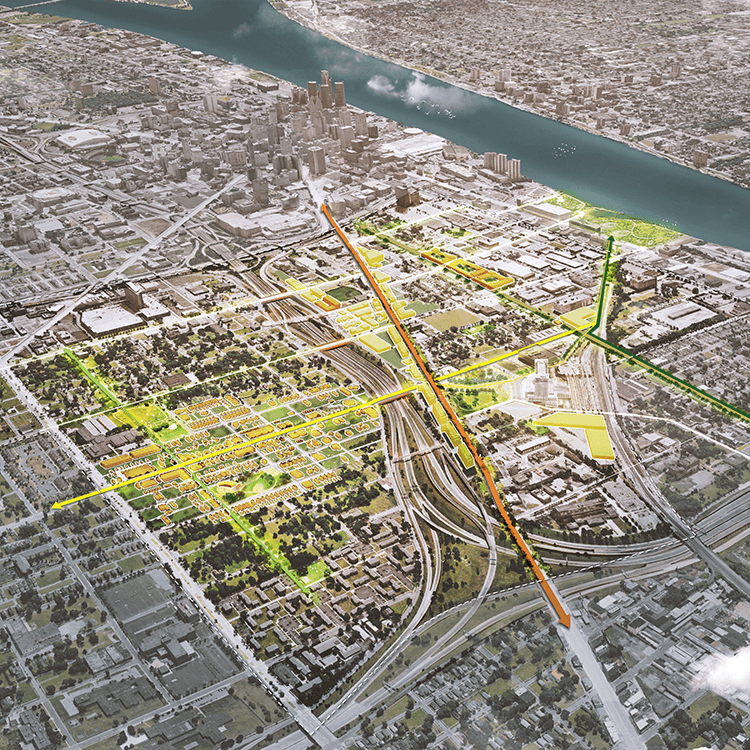
Greater Corktown Neighborhood Framework Plan
Corktown’s story is one of resilience. Once a thriving community along Michigan Avenue, it has weathered disinvestment and urban renewal, with its population shrinking to a fraction of its pre-war size. Yet its spirit endures. Today, a new chapter is unfolding—one that preserves Corktown’s heritage while creating a more inclusive, connected, and livable future.
The Greater Corktown Neighborhood Framework Plan provided a roadmap for this transformation. Led by the City of Detroit, the plan has secured over $990 million in funding, including a $30 million Choice Neighborhoods Implementation (CNI) grant. These investments are stabilizing housing, enhancing infrastructure, and expanding economic opportunity—without displacing the people who make Corktown unique.
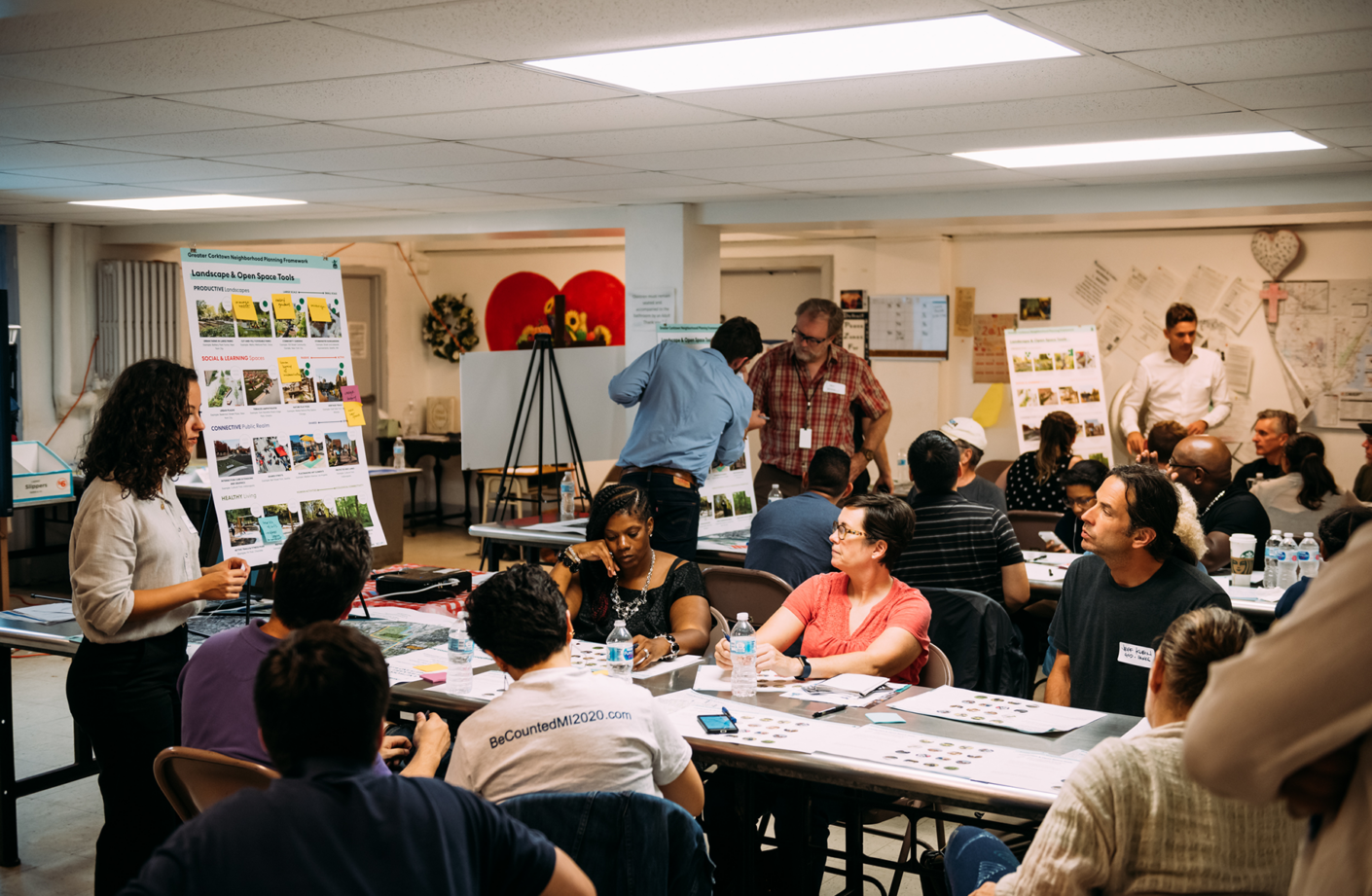
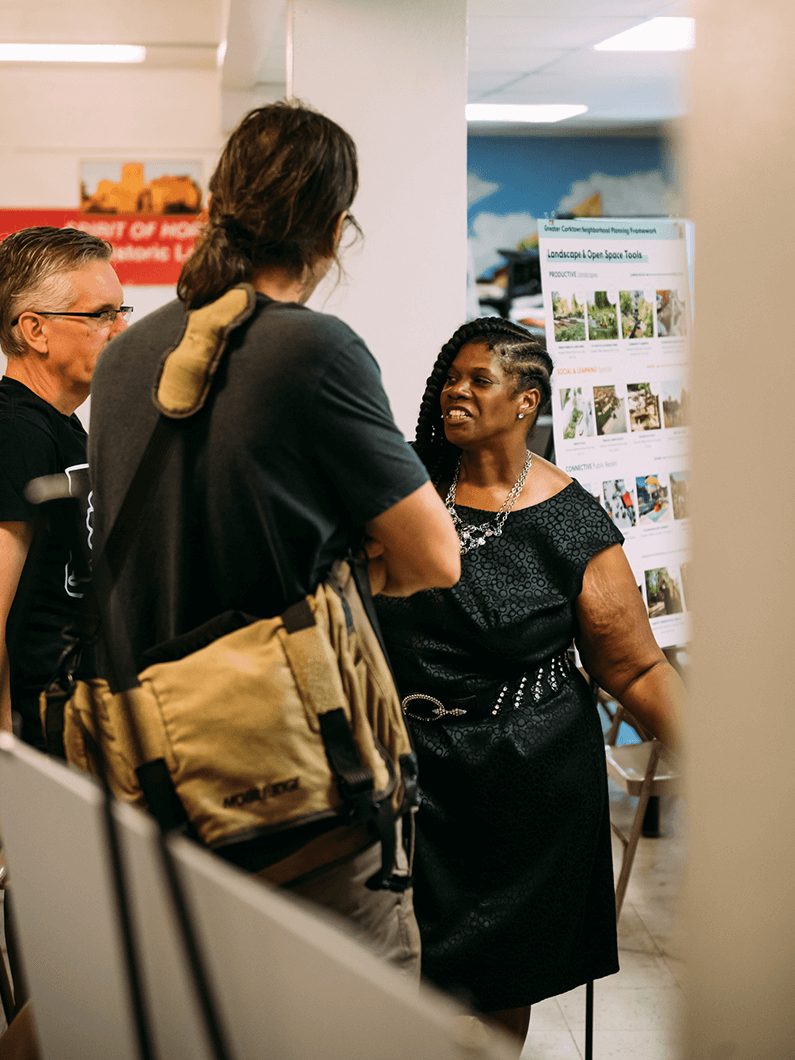
Corktown’s future is built on the voices of its residents. Over two years, more than 40 meetings, pop-up events, and workshops engaged long-time community members and new stakeholders alike. Door-to-door canvassing and multilingual outreach ensured every voice was heard.
This collaborative approach keeps residents at the center of decision-making. Their priorities, affordability, mobility, and public space are guiding every step of the plan’s implementation.
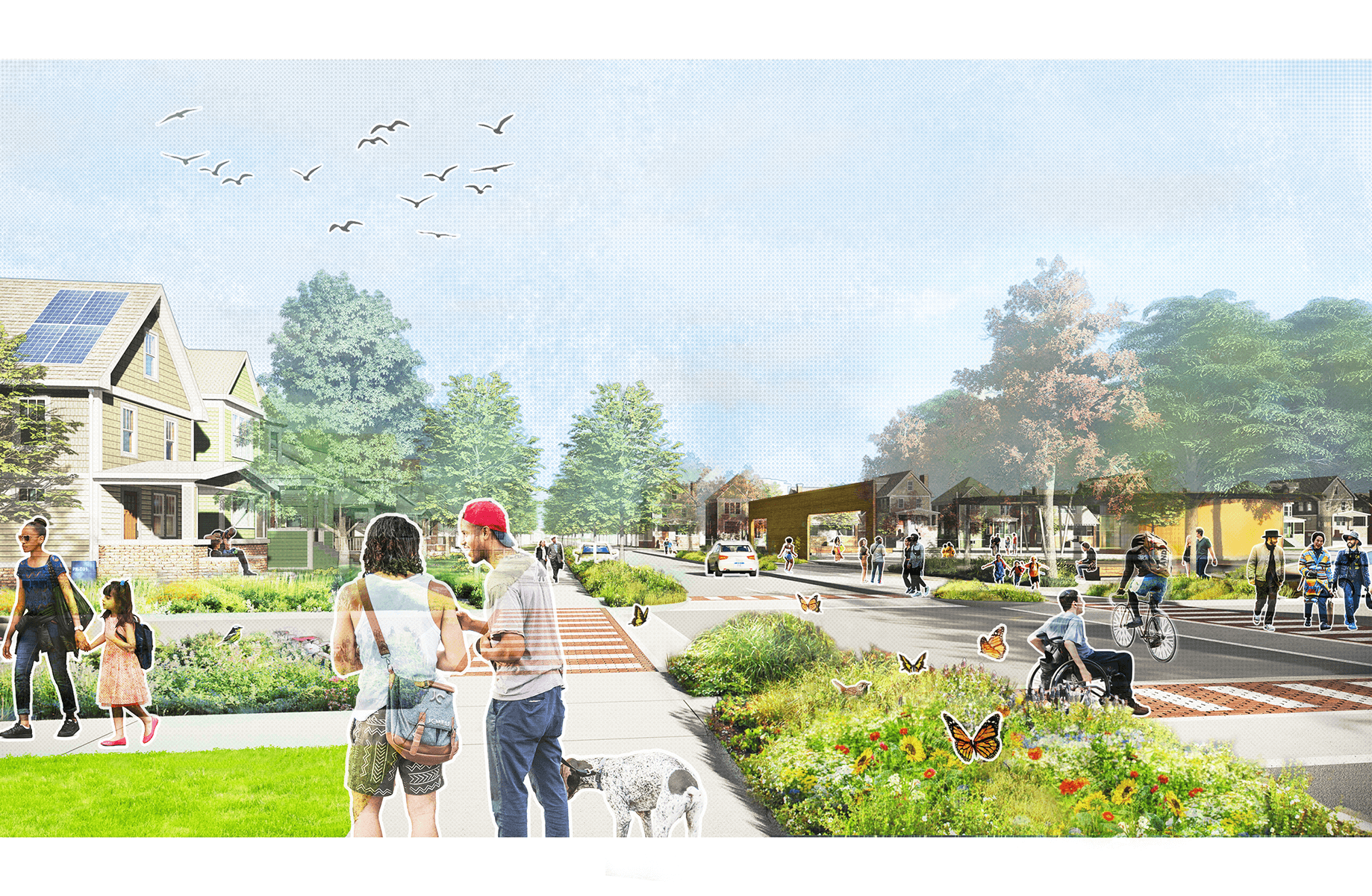
Since 2020, the plan has already sparked major investments:
- Housing Stability: $30 million invested at the former Tiger Stadium site and $55 million in North Corktown, bringing new affordable housing options.
- Public Space & Mobility: A $6 million revitalization of Roosevelt Park, new bike and pedestrian corridors, and Michigan Avenue’s transformation into a multimodal street.
- Community Investment: A $10 million neighborhood hub with early childhood education and empowerment programs.
Corktown’s evolution is in motion – rooted in history, driven by community, and designed for the future.
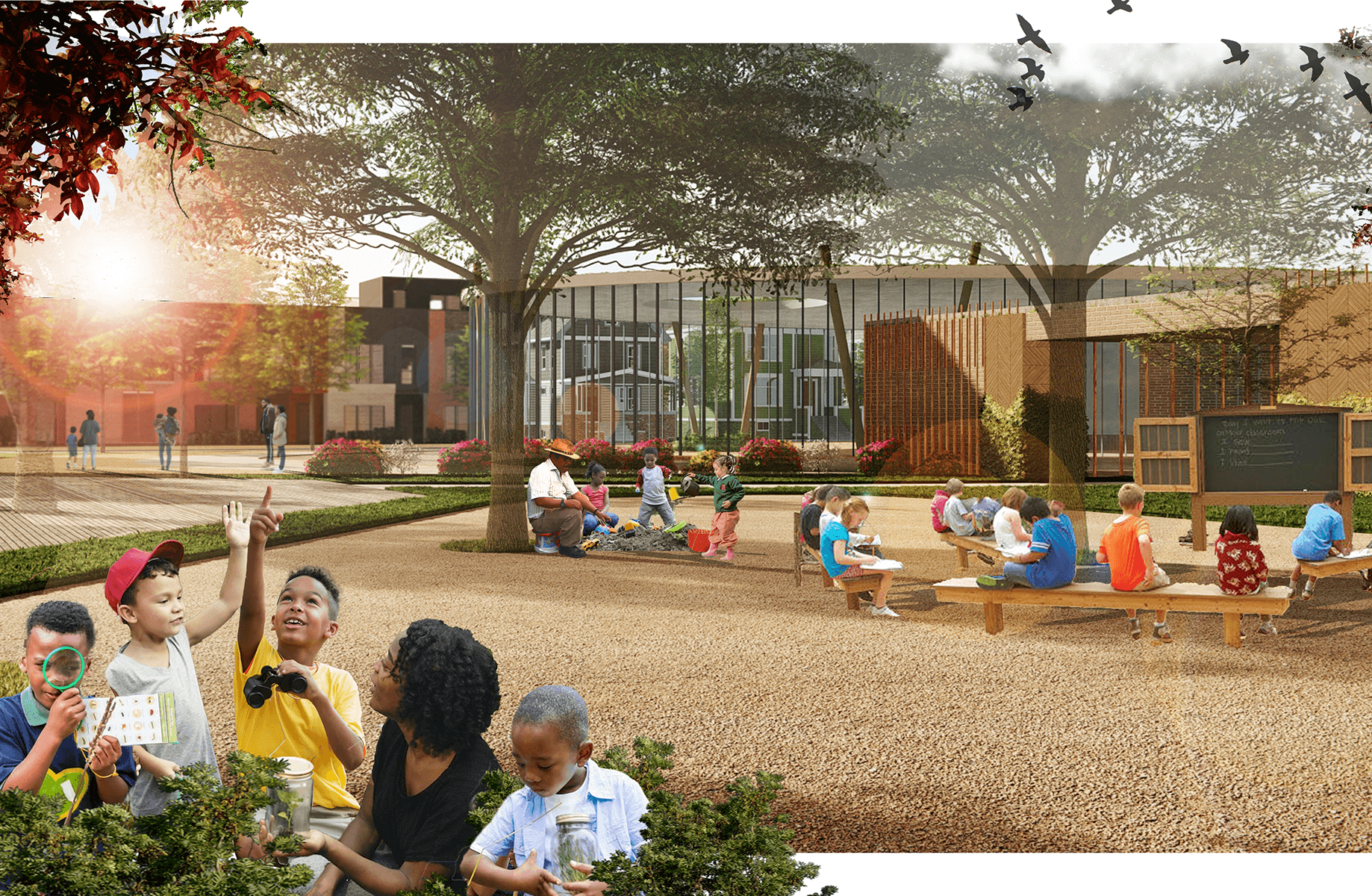
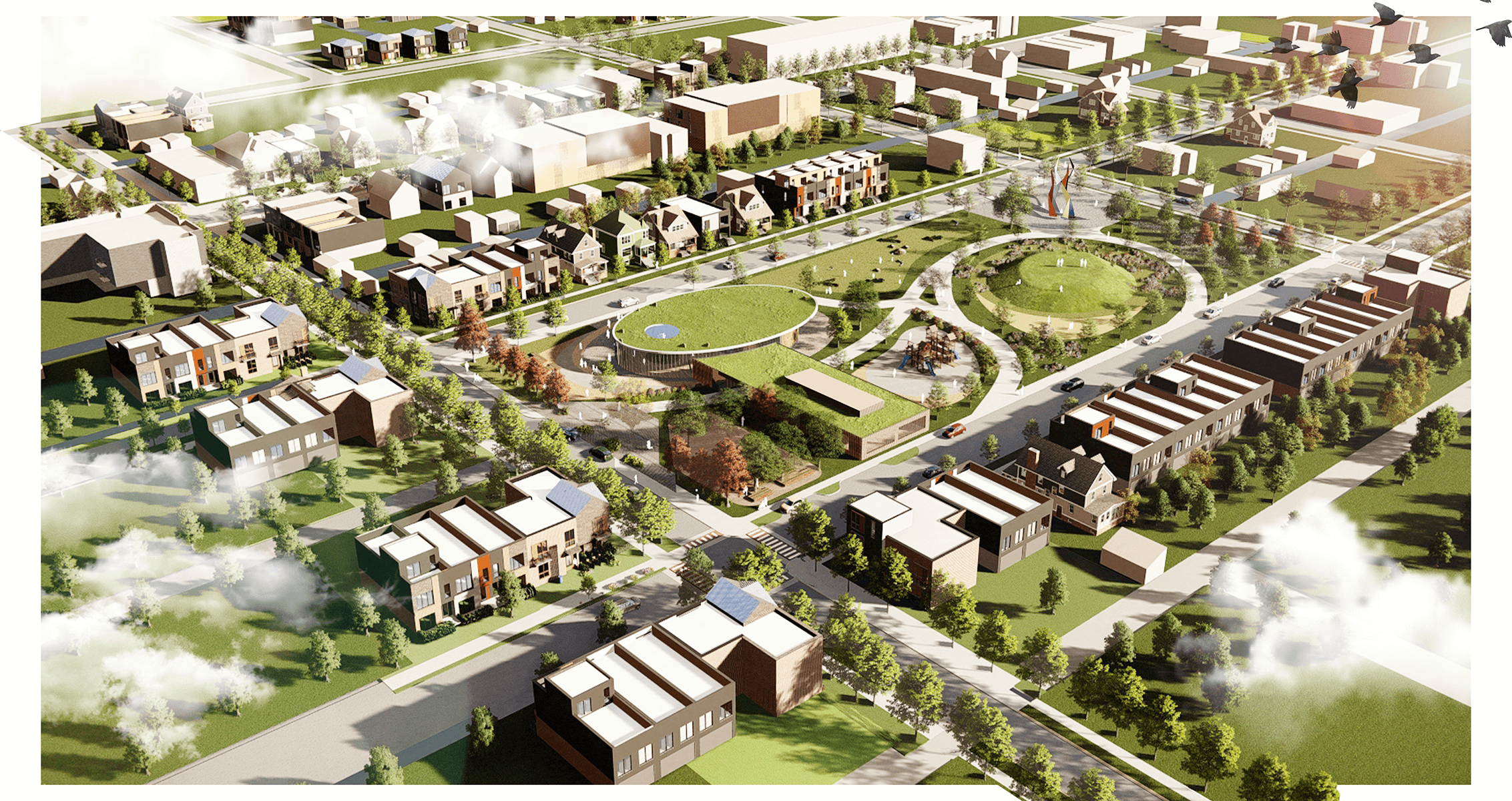
As investment returns, so does the need to protect long-time residents of Corktown. More than 800 mixed-income housing units are in development at sites like Clement Kerns Gardens, North Corktown, and the former Tiger Stadium’s Left Field site. Policies to stabilize rents, create homeownership opportunities, and activate publicly owned land are ensuring Corktown’s growth remains inclusive.
